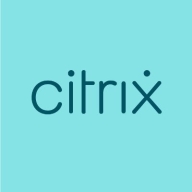

Citrix XenServer and VMware vSphere Foundation compete in virtualization platforms, each catering to different business needs. While VMware vSphere Foundation is viewed as having an edge due to its advanced features, Citrix XenServer offers a more appealing pricing and support model for budget-conscious buyers.
Features: Citrix XenServer provides simplified management capabilities, robust live migration, and straightforward operations, making it suitable for businesses seeking streamlined solutions. VMware vSphere Foundation offers extensive cross-platform support, advanced automation, and comprehensive resource management, providing a sophisticated virtualization environment.
Ease of Deployment and Customer Service: VMware vSphere Foundation features a straightforward deployment model with comprehensive documentation and strong integration, facilitating a seamless setup process. Citrix XenServer delivers a more direct deployment model with efficient customer support, ideal for quick implementation in less complex environments.
Pricing and ROI: Citrix XenServer is noted for its lower initial setup costs, offering a good ROI for cost-effective projects. VMware vSphere Foundation, requiring a higher upfront investment, provides significant long-term ROI through enhanced features and scalability, making it attractive for enterprises prioritizing long-term benefits.
My clients generally maintain their Citrix infrastructure without shifting, suggesting stability and reliable operation as Citrix XenServer is fully established.
In an environment where the infrastructure has to be up for monitoring and controlling physical infrastructure like water plants, it has absolutely returned on its investment.
Server consolidation is one return on investment where we can use one server for multiple workloads.
While the return on investment is not clearly defined, the manageability of multiple servers without needing additional personnel or specialists is beneficial.
They do not provide adequate support for midsize businesses.
Since being acquired, Citrix's customer service has experienced delays in response time.
There is nonstop support available around the world, which allows issues to be resolved continuously without interruption, regardless of whether the problem occurs in the USA, India, or another location.
Now, with Broadcom's management, I would rate it a three out of ten.
Most of the time, VMware operates smoothly without requiring support.
Familiarity with Linux can enhance its performance and usability.
The return on investment is high because we can maximize the use of one server for multiple workloads.
It's straightforward to procure additional licenses, install them on the host and add them to the same cluster.
You can simply add more hosts to your VMware stack seamlessly, scaling up vertically or horizontally.
Stability is optimal.
Frequent updates are required due to constant security challenges and attacks.
It is a standard tool and is considered very stable.
Although the product is technically competitive, it is not widely known or used due to poor marketing.
Citrix needs to improve the hypervisor, specifically in security and performance.
VMware needs to improve cost efficiency, especially in Pakistan, as customers often seek more affordable solutions.
Recently, VMware shifted its licensing models, and they should streamline it.
It is not legally compliant to use an Oracle database on VMware, which does not support Oracle core-based licensing.
It is cheaper compared to its competitors.
The pricing and licensing policy of Citrix XenServer is not transparent and quite confusing.
It's expensive, however, the stability it offers is optimal.
In Brazil, we are increasingly using open-source alternatives like Proxmox due to their lower prices in comparison.
vSphere Foundation is considered very expensive, especially when compared to competitive Chinese products.
It provides secure access to applications and resources, which is crucial for us and our clients.
It is user-friendly and easy to deploy, making it an attractive option.
vSphere Foundation is valuable due to its scalability, reliability, and ease of management.
VMware provides the tools needed to move environments between private and public clouds seamlessly.
The virtual stack of vCenter, its distributed resources system, high availability engines, and the ability to move VM workloads from one host to another are outstanding.


Citrix XenServer is a virtualization platform used in industries such as banking, automotive, and data applications for cloud automation, server virtualization, and VDI scenarios. It supports infrastructure management, virtual machine hosting, and enterprise software deployment, reducing costs by migrating from other platforms.
As a virtualization tool, Citrix XenServer stands out for its ease of maintenance, support, scalability, and centralized management. Commonly deployed on-premises and in data centers, it provides real-time monitoring, live migration, and strong security features. With compatibility across many operating systems, users benefit from a Windows-based management interface that is easy to install and navigate. Integration capabilities with active directory, storage, and load balancing contribute to resource optimization and reliability.
What are the key features of Citrix XenServer?Implementation in banking, automotive, and data applications leverages Citrix XenServer's strengths in cloud automation and virtualization. Organizations manage resources, deploy services, and ensure stable operations within their infrastructure. The platform is used both on-premises and in data centers, aiding in areas such as cost reduction and maintenance efficiency.
VMware vSphere Foundation is designed for businesses seeking virtualization management capabilities. It offers essential features to optimize IT operations and improve server utilization, providing a solid infrastructure for managing virtual environments.
VMware vSphere Foundation supports efficient resource management in virtual environments, delivering a robust platform for businesses to streamline their IT processes. It enhances system reliability and offers scalable options for growing business needs. By leveraging virtualization, it reduces hardware dependency while ensuring consistent system performance.
What are the key features of VMware vSphere Foundation?VMware vSphere Foundation is implemented effectively across industries like healthcare, finance, and retail. It supports crucial workloads, allowing these sectors to maintain operational efficiency while handling sensitive data. Its flexibility and robust capabilities make it suitable for diverse operational demands.
We monitor all Server Virtualization Software reviews to prevent fraudulent reviews and keep review quality high. We do not post reviews by company employees or direct competitors. We validate each review for authenticity via cross-reference with LinkedIn, and personal follow-up with the reviewer when necessary.